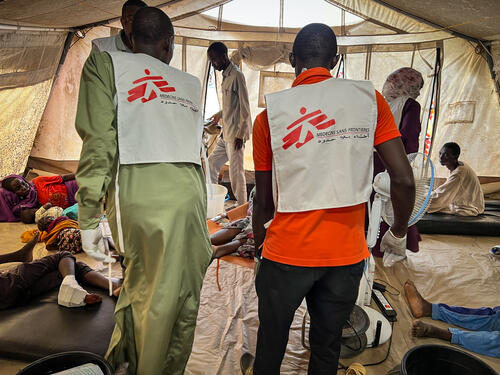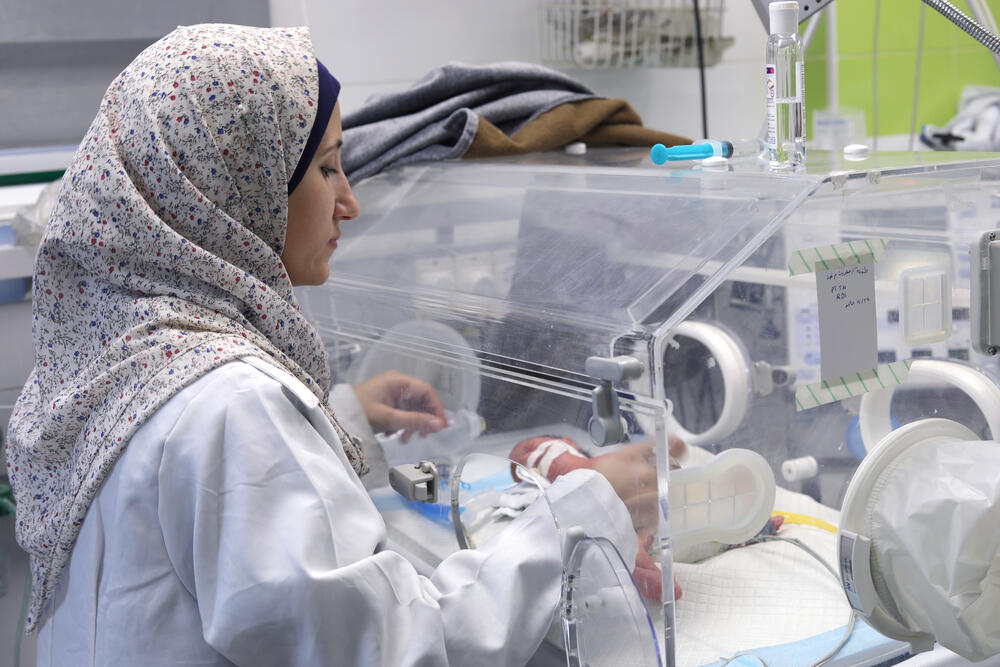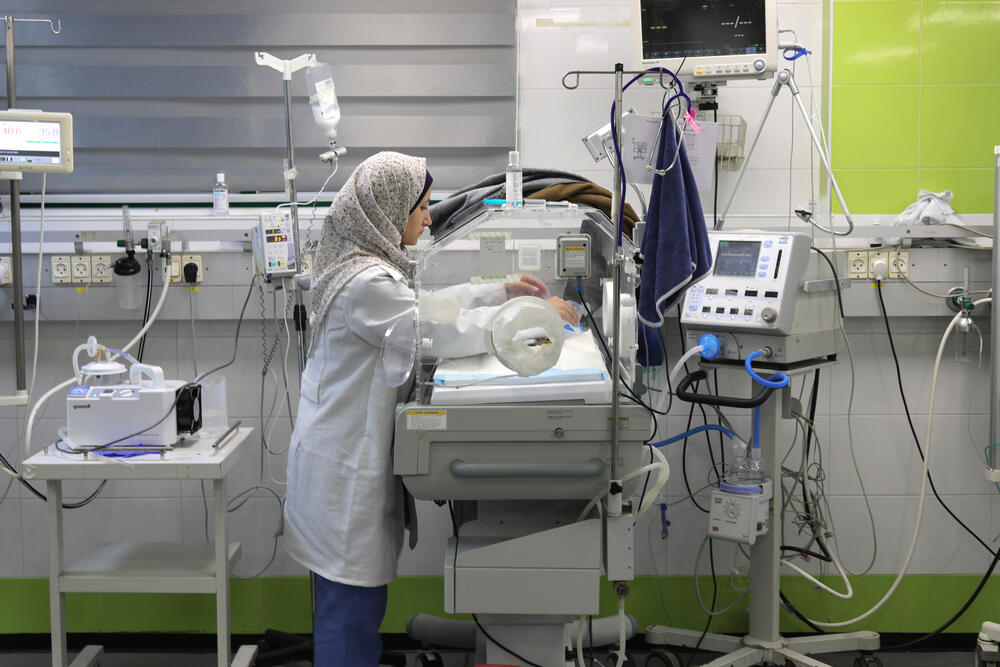Gaza: Winter puts babies at even greater risk
Israel’s ongoing war on Gaza has forcibly displaced over 1.9 million people, leaving families to endure winter in fragile, makeshift tents with minimal protection from the cold. MSF's intensive care unit at Nasser Hospital is witnessing the devastating impact of cold weather on babies and children.
Children are especially vulnerable as temperatures are dropping, and families continue to lack proper access to essential items such as water, food, and warm shelter.
On 25 December, three babies, all under one month of age were brought dead on arrival at Nasser Hospital, in Khan Younis, Gaza. They died because of cold temperatures, according to the Ministry of Health.
These children were living in tents in Al Mawasi, southern Gaza, where thousands of Palestinians have been forcibly displaced by the Israeli forces and live in overcrowded, unsanitary conditions.
With winter setting in on worn-out tents, conditions in the area have become unbearable. Families are living in fragile tents that barely isolate the winter rain.
Most families cannot afford the means to stay warm, including firewood, gas, or even warm blankets, which can cost up to £160, even when available in local Gazan markets.
“Last winter - although people were already displaced and the conditions were harsh - there were still some buildings to take shelter in,” says MSF emergency coordinator Pascale Coissard.
“Today, after 14 months of war and destruction of infrastructure, most people in Gaza are living in tents that barely isolate the cold wind and rain. Just in the past 12 hours the rain hasn’t stopped.”
The risk of hypothermia
At the MSF-supported paediatric department of Nasser Hospital in Khan Younis, the impact of the humanitarian catastrophe on children's health is evident.
MSF teams in the neonatal intensive care unit (NICU) are treating children with respiratory infections, dehydration, and premature newborns with complications – conditions that can be life threatening to newborns and premature babies.
From October 2024 to December 2024, the MSF supported neonatal intensive care unit has had 325 admissions.
“The exceptional conditions we have gone through in the past 14 months, as well as the current drop in temperatures, further deteriorating the living conditions in the worn-out tents have made these kids more prone to hypothermia”, says Dr Mohammad Abu Tayyem, MSF paediatrician at Nasser Hospital.

Our work saves lives
The health needs of children are so high that the paediatric department, including the NICU, have been operating beyond its bed capacity since July with around 25 beds, all full.
Over a quarter of the patients in the department are admitted for respiratory distress syndrome, a condition that can occur in premature infants when their lungs aren’t fully developed and cannot provide enough oxygen.
Displaced and cold
“Even before their lives have started outside the womb, babies are at risk of disease and death,” says Coissard.
“Once born, babies face immediate and extreme challenges: displaced in the cold of winter, without adequate access to warmth, shelter, or healthcare, as Israel continues to bomb Gaza and restrict essential supplies from entering the Strip.
“The looting of aid trucks within the enclave is making it difficult for that small amount of aid allowed by Israeli authorities to reach those in need.”
MSF’s activities in paediatric and neonatal healthcare are just a drop in the ocean of high medical needs in Gaza. An immediate and permanent ceasefire in Gaza is the only solution to ease the suffering of Palestinians and guarantee access to healthcare and humanitarian aid.
MSF calls on the Israeli authorities to ensure rapid, unimpeded and safe entry of humanitarian aid at the level sufficient to address people’s needs, including supplies to prepare for winter.
MSF calls for all parties to ensure safe routes to move humanitarian assistance inside the Gaza Strip.
MSF and the Israel-Gaza War
An unprecedented humanitarian crisis is unfolding in Gaza. MSF teams have worked to treat the wounded and supply overwhelmed hospitals as indiscriminate airstrikes and a state of siege threaten millions of men, women and children.

